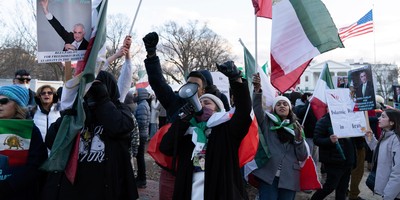In December 2006, the government of newly inaugurated Mexican President Felipe Calderon decided to treat the problem posed by Mexico's drug cartels as a military as well as criminal challenge. That has an echo of Colombia, where its leftist guerrillas have gone into the drug business. But it is an echo. While Mexico and Colombia have some similarities, there are a number of differences, the chief one being the Mexican federal government is much stronger than Colombia's.
Is a "drug war" a genuine war? A dictionary debate may be in order, but police and special operations soldiers know "gang warfare" often straddles the line between crime and "insurgent warfare." Take Iraq as an example. Iraqi crime syndicates have participated in "political" kidnappings. Their first interest is money, not politics, but bribing political leaders and "doing favors" for terrorists (in exchange for cash) undermines civil society.
The possibility of an independent Kosovo turning into a "smugglers state" worries many European diplomats. Kosovo's new prime minister was a former Kosovo Liberation Army commander. The KLA was deeply involved in Balkan smuggling and narcotics trafficking -- essentially the KLA was a smuggling gang that also had a political agenda.
Mexican gangs are certainly spilling gallons of blood. "Gangland" type executions in Mexico have increased dramatically since 2001. It's not that these executions didn't take place in 2001 -- around 110 were reported. However, in 2007 period an estimated 2,500 took place.
Mexico is neither Iraq nor Kosovo, but the Mexican drug cartels have enormous financial resources and the ability to corrupt entire police departments. On a daily basis, the cartelistas employ murder and torture as business tools.
The existence of sophisticated, highly trained and very well-armed paramilitary organizations like the Gulf drug cartel's Zetas is one reason Calderon's counter-cartel war plan relies on the Mexican Army. The army is better trained than the police, less corrupt and generally trusted by the Mexican people. The army also has weapons as good (if not better) than the drug cartels
Recommended
Mexico also faces an armed "proto-insurgency" using terrorist tactics to advance its political agenda. In mid-2007, the Popular Revolutionary Army (EPR) launched a violent wave of bomb attacks on PEMEX facilities. The EPR has existed under various names for at least three decades. This "new EPR" portrays itself as a "socialist" and "proletarian movement" -- definitely rhetoric with Cold War echoes, but then Venezuela's Hugo Chavez still promotes Castroite socialist revolution.
The EPR has attacked targets in central and eastern Mexico. The attacks in eastern Mexico closed a major gas pipeline that shut down production at several major factories. The Mexican government estimated that pipeline attack cost the Mexican economy $150 million a day in lost production, which was precisely the EPR's goal. The EPR's violent revival, in the midst of Calderon's war on the cartels, may or may not be a coincidence. Many Mexicans and military analysts don't think so. The revolutionaries need money, and the drug cartels have money. It's a traditional marriage of convenience made in hell.
Over the past 13 months, the army and federal police task forces have used both counter-insurgency warfare tactics and law enforcement techniques in counter-cartel operations. At times, the counter-insurgency tactics have taken precedence over traditional police-type anti-crime measures.
The Mexican government believes its war on the cartels has been a tentative success. In September 2007, Calderon gave his first "state of the union" speech. Calderon said that the Mexican military and police forces have gained "momentum" in the war against drug cartels. He noted that 200 Mexican soldiers and policemen had died in the last year and half at the hands of drug cartels and organized criminals.
Mexican officials, including Calderon, caution that "the war" will continue for a long, long time. Calderon said the fight with criminal syndicates was "a permanent battle." However, his government ultimately hopes that battle will be fought by honest, reliable police forces instead of the military.

























Join the conversation as a VIP Member